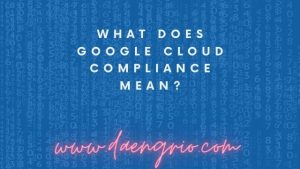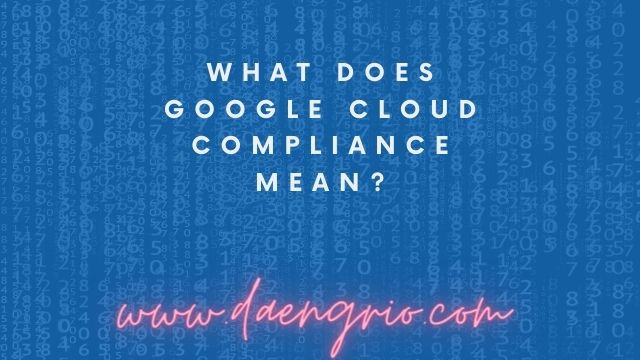Whether you’re considering a move to Google Cloud or looking for the best cloud provider, you must ensure that your company follows all applicable laws and regulations. Having the proper compliance tools is a critical step in reducing security risks. When you use the right tools to monitor your compliance, you’ll be able to identify and close any security gaps quickly. This can help you avoid fines and keep your business safe. Google Cloud Platform has been certified in a number of industry compliance standards.

ISO 27017, for example, focuses on specific security controls in cloud environments. It also provides a variety of compliance certifications. PCI-DSS, which stands for Payment Card Industry-Data Security Standard, is one of them. Google Cloud has also been certified by the Information Security Registered Assessors Program, which evaluates an organization’s security in relation to the Australian government’s security requirements.
According to the EU’s GDPR, cloud providers must provide “reasonable security” to protect personal data. It also places restrictions on where data can be stored and processed. As a result, cloud providers should put in place a variety of security controls to ensure compliance.
The USDM Cloud Assurance certification is an independent third-party audit that identifies and validates the security controls of a cloud service provider. USDM evaluates a cloud provider’s technology stack and validates the organization’s processes and maintenance methodologies. Additionally, the organization conducts post-release compliance testing. The findings are compiled into a Vendor Assurance Report, which can be used as regulatory proof.
Cloud compliance standards differ greatly between industries. However, there are some general guidelines that businesses should follow. These rules include encrypting sensitive data, ensuring reasonable workload security, and conducting regular internal audits. Businesses must define a set of rules and use the appropriate tools to ensure compliance in order to meet these requirements.
Businesses should stay up to date on regulatory changes in addition to ensuring compliance. This includes understanding which laws apply to their business and the potential penalties for noncompliance. Furthermore, businesses should perform regular internal security audits to identify any security gaps. The right tools can help eliminate these issues while also monitoring changes to cloud compliance.
Cloud compliance can be challenging to manage, but a cloud provider can help. By providing a comprehensive view of their workloads, cloud compliance tools assist businesses in streamlining their compliance processes and ensuring compliance. The right tool can reduce organizational friction and keep Google Cloud compliance at the forefront of a company’s operations. Using the right tools can help ensure compliance, whether it’s monitoring changes to Google Cloud compliance, identifying vulnerabilities, or enforcing custom governance policies.
Google Cloud has several compliance offerings for businesses in the health care industry. Health data is protected by HIPAA security rules. Whether the company is a health care provider or a patient, adhering to HIPAA regulations is critical. Businesses must ensure that their Google Cloud service accounts are HIPAA-compliant and that data is secure while in transit.
